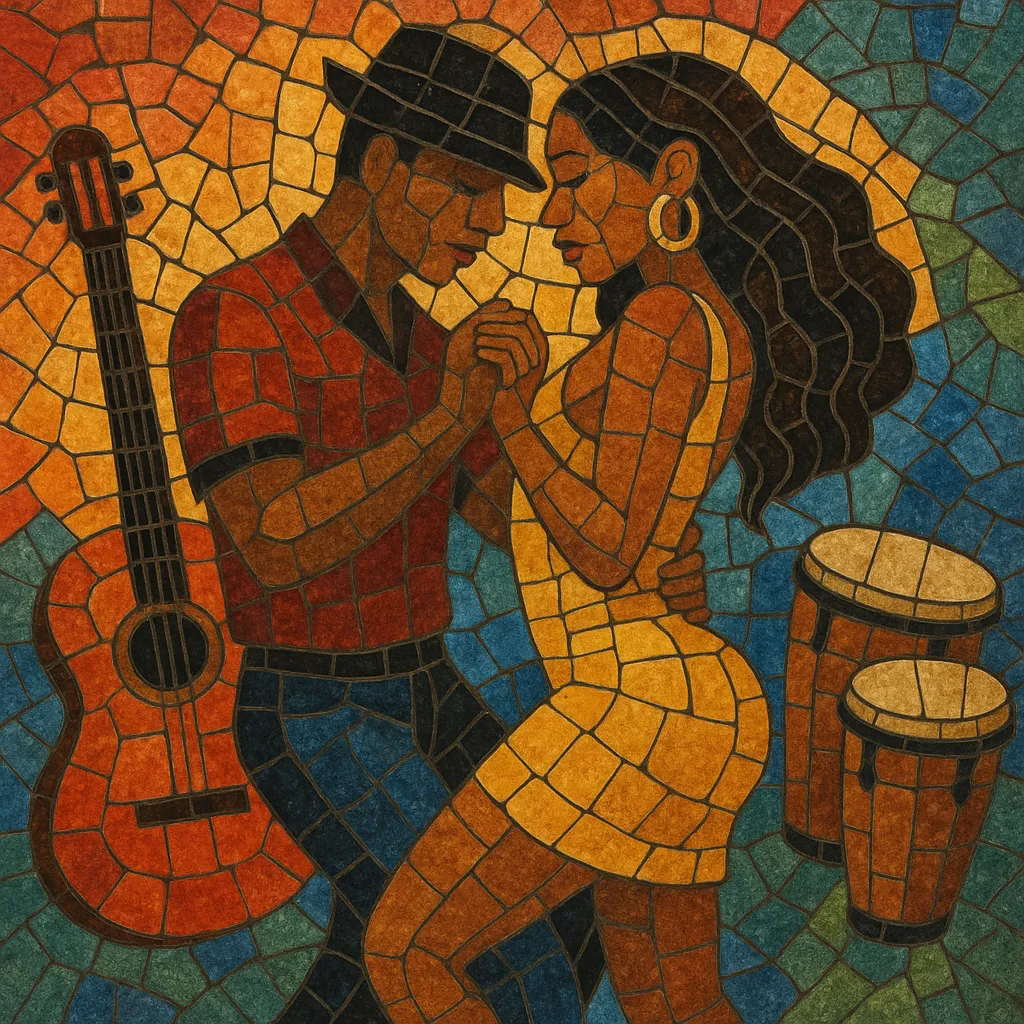Bachatón is a hybrid of bachata and reggaetón that blends the romantic, guitar-driven melodies of bachata with the dembow drum pattern, MC ad-libs, and urban swagger of reggaetón.
Typically slower and more polished than classic reggaetón, bachatón centers on love, longing, and dance-floor intimacy. It features requinto-style lead guitar hooks, glossy R&B-influenced vocals, and a dembow groove beneath, making it accessible for both radio and clubs.
The style surged in the mid-2000s through Puerto Rican and Dominican diaspora artists who bridged bachata’s sentiment with urbano’s rhythmic power.
Bachatón emerged as the urbano scene expanded beyond hardcore reggaetón into more melodic, romantic directions. Producers and artists in Puerto Rico and the Dominican diaspora experimented with layering bachata’s requinto guitar and harmonies over the dembow beat. The term “bachatón” gained currency as reggaetón labels and DJs released “bachatón mixes” of hits and as artists like Toby Love popularized the fusion on mainstream radio.
Mid-2000s releases—most notably Toby Love’s “Tengo Un Amor” (2006)—brought the sound to a wide audience. Reggaetón duos such as R.K.M & Ken-Y released bachata versions of their romantic reggaetón tracks, and collaborations between urbano stars and bachata groups (e.g., Aventura with reggaetón acts) cemented the crossover. The style’s identity coalesced around smooth R&B vocals, Spanglish lyricism, romantic themes, and a dembow pulse accented by bachata guitars.
Through the late 2000s and 2010s, bachatón influenced the broader “romantic” wave in reggaetón and Latin pop. While pure bachata and pure reggaetón each continued to thrive, the fusion format remained a go-to for crossover singles and remixes. Pop-leaning urbano artists increasingly adopted guitar-centric hooks and softer toplines, reflecting bachatón’s imprint on mainstream Latin music.
Bachatón helped normalize guitar-forward, love-themed urbano singles and opened new pathways for collaborations between bachata and reggaetón artists. Its DNA is audible in romantic reggaetón ("romantic flow") and pop-reggaetón crossovers that foreground melody without abandoning the dembow backbone.


